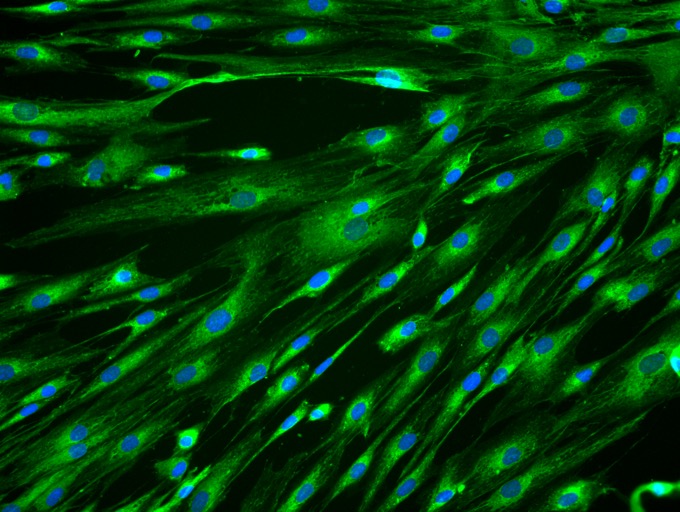
AI project to power the future of stem cell manufacturing
A new project to improve stem cell manufacturing using artificial intelligence (AI) could have lasting impacts for the health sector.
The three-year project, entitled ‘DeepStain: Deep Learning for Cell Image Analysis’ hopes to accelerate an area of drug development which is at the root of many diseases.
DeepStain is part of a strategic partnership between Irish biotechnology company Valitacell and CeADAR, Ireland’s Centre for Applied Artificial Intelligence.
The project has received €242,000 funding from Enterprise Ireland and the EU under the Marie Skłodowska-Curie Co-Fund Scheme, which is part of the Horizon 2020 Research and Innovation programme.
Stem cells have the potential to treat many conditions including cancer, arthritis, and Crohn’s disease. Monitoring stem cell quality involves a lot of slow and difficult laboratory work, meaning they can be hard to manufacture.
The DeepStain project will use AI to quickly analyse images of stem cells to determine their quality and make stem cell manufacturing more efficient.
The core team is composed of Dr Ricardo Simon Carbajo (CeADAR), Dr Paul Dobson (Valitacell) and Dr Polat Göktaş (CeADAR & Valitacell), and builds on previous work and interdisciplinary expertise.
“AI can massively help to improve the Biopharma value chain,” said Dr Ricardo Simon Carbajo, head of innovation & development at CeADAR. “In this project, we will be applying the latest techniques in Computer Vision to speed up the process of manufacturing stem cells. We are delighted to partner with Valitacell as they are truly innovating in this area and we can produce a real impact in society.”
“Working with CeADAR will help Valitacell leverage the power of Deep Learning to create better bioprocess analytical technologies to support stem cell therapy manufacturing,” said Dr Paul Dobson, head of data at Valitacell. “This will help translate stem cells from being a niche experimental therapy into a treatment available to patients worldwide.”
TechCentral Reporters





Subscribers 0
Fans 0
Followers 0
Followers